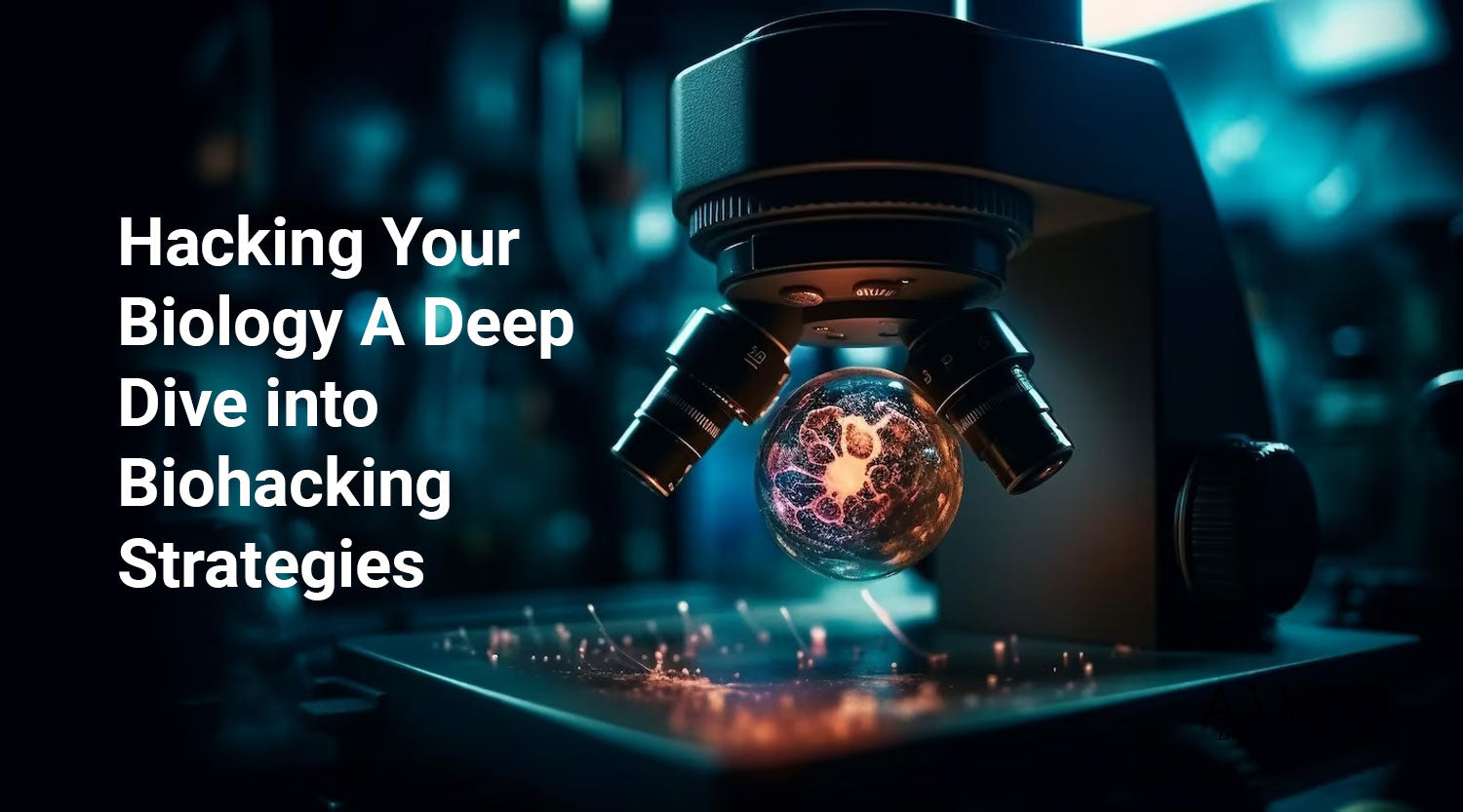
Unlocking Your Brain's Potential: The Intersection of Neuro Nutrition and Biohacking
Understanding Biohacking: A New Frontier in Wellness
The Concept of Biohacking
Biohacking blends science with self-experimentation to enhance health. It aims to make your body function better. This concept involves tweaking your lifestyle. It focuses on diet, exercise, and sleep changes. People also use tech and biology tools. It's a DIY approach to personal wellness. Biohackers believe in full control over their own biology. They use insights and gadgets to tweak their health. This leads to optimized wellbeing.
Historical Development and Modern Applications
Biohacking has evolved rapidly. Historical roots trace back to DIY biology and cybernetics. Today, it blends with fields like genomics and synthetic biology. Modern applications span from personal health monitoring to enhancement. The movement embraces a mix of technology, biology, and data. Its goal is to optimize human function and well-being. People use wearables, diet tweaks, and self-experimentation. These methods aim to push the boundaries of individual potential. The practice has grown in popularity among those eager to take health into their own hands.
Ethical Implications and Controversies
As biohacking enters the mainstream, ethical questions arise. It's important to consider the moral aspects of self-experimentation and the impact on society. The debate around biohacking is not just about personal health but also about fairness and safety. Issues such as bio-privacy and genetic equity come to the forefront. Furthermore, regulation is a grey area, with a need for guidelines to govern biohacking practices. These controversies reflect the deep philosophical discussions about human enhancement and the future of our species. In this light, biohacking is not only a wellness trend but an ethical conundrum that needs careful consideration and discussion.
Neuro Nutrition: Fueling the Brain's Fire
The Importance of Nutrition in Brain Health
The brain, like any engine, demands quality fuel to run efficiently. Neuro nutrition focuses on this principle. It pinpoints the types of food that enhance brain functions. A balanced diet nourishes the mind, supporting everything from memory to mood. Additionally, certain nutrients can shield the brain from aging and damage. Thus, optimal brain health hinges on conscientious food choices, rooted in neuro nutrition.
Key Nutrients for Optimal Cognitive Performance
Optimal cognitive performance hinges on the brain's access to crucial nutrients. Omega-3 fatty acids are paramount as they make up cell membranes and support signal transmission. Similarly, antioxidants found in colorful fruits and vegetables battle oxidative stress, which can impair cognition. B vitamins are essential too; they aid in the production of neurotransmitters. Magnesium plays its part by regulating nerve function. To not forget the role of amino acids like tryptophan and tyrosine, which are precursors to vital neurotransmitters. Lastly, nootropic foods such as nuts, seeds, and leafy greens are gaining recognition for their brain-boosting properties. Incorporating a diverse array of these nutrients into one’s diet can lay the foundation for a sharpened mind.
The Role of Diet in Mental Wellness
Diet greatly impacts our mental wellness. What we eat feeds not just our bodies but our minds as well. It shapes our mood, focus, and stress levels. A balanced diet rich in essential nutrients leads to a healthy brain. This includes complex carbs, healthy fats, and lean proteins. Vitamins and minerals also play a key role. Eating patterns like the Mediterranean diet have shown benefits. This diet is high in fruits, vegetables, and omega-3s. Foods high in antioxidants can fight brain aging. Fermented foods may boost gut health, which links to our mood. Limiting processed foods helps prevent mood swings due to sugar highs and lows. By choosing the right foods, we can enhance mental clarity and well-being.
Integrating Biohacking with Neuro Nutrition for Better Sleep
The Link Between Sleep Quality and Brain Health
Quality sleep is vital for brain health. It is when the brain repairs itself and consolidates memory. Good sleep boosts focus, problem-solving skills, and creativity. It also helps to manage stress and emotions. Poor sleep can hurt these brain functions. It is linked to a higher risk of conditions like depression and dementia. By combining biohacking with neuro nutrition, we may optimize our sleep. This can lead to improved mental health and cognitive abilities.
Innovative Biohacking Techniques for Improving Sleep
- Light Control: Manipulating light exposure to regulate melatonin, enhancing sleep cycle.
- Temperature Regulation: Employing cooling/heating sleep tech to achieve ideal sleeping conditions.
- Sleep Tracking Devices: Utilizing wearables to monitor and analyze sleep patterns for improvement.
- Soundscaping: Curating personalized sound environments to promote deep sleep states.
- Supplementation: Leveraging neuro-nutrients like magnesium or omega-3s to support sleep quality.
- Mindfulness Practices: Using meditation or guided imagery to calm the mind before bed.
Case Studies: Successful Biohacking Strategies for Sleep Optimization
- A tech CEO implemented a dusk-like lighting system in his home. It mimics natural sunset cues to enhance melatonin release, leading to improved sleep quality.
- An author combined a strict ketogenic diet with intermittent fasting. This biohack optimized her brain fuel, promoting deeper, more restorative sleep.
- A group of programmers engaged in 'pink noise' therapy. They found that consistent pink noise during sleep boosts memory retention.
- A biohacker experimented with magnesium-threonate supplements. This nutrient supports brain health and aided in achieving a state of deep, uninterrupted sleep.
- A fitness instructor adopted a polyphasic sleep schedule. While controversial, he reports that aligning sleep with his body’s natural rhythms significantly improved his cognitive function.
